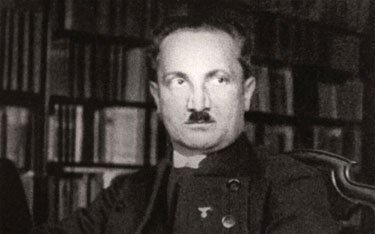
That skunk Heidegger
From Scientific Philospher (who mentions 30, but only list 10 and offers no link, but I found them at Flavorwire).
Bertrand Russell on Aristotle
“I do not agree with Plato, but if anything could make me do so, it would be Aristotle’s arguments against him.â€
Jean-Paul Sartre on Albert Camus
“Camus… a mix of melancholy, conceit and vulnerability on your part has always deterred people from telling you unvarnished truths. The result is that you have fallen prey to a gloomy immoderation that conceals your inner difficulties and which you refer to, I believe, as Mediterranean moderation. Sooner or later, someone would have told you this, so it might as well be me.â€
Camille Paglia on Michel Foucault
“The truth is that Foucault knew very little about anything before the seventeenth century and, in the modern world, outside France. His familiarity with the literature and art of any period was negligible. His hostility to psychology made him incompetent to deal with sexuality, his own or anybody else’s. … The more you know, the less you are impressed by Foucault.†…
Bertrand Russell on Georg Hegel
“Hegel’s philosophy is so odd that one would not have expected him to be able to get sane men to accept it, but he did. He set it out with so much obscurity that people thought it must be profound. It can quite easily be expounded lucidly in words of one syllable, but then its absurdity becomes obvious.â€
Noam Chomsky on Slavoj Žižek
“There’s no ‘theory’ in any of this stuff, not in the sense of theory that anyone is familiar with in the sciences or any other serious field. Try to find… some principles from which you can deduce conclusions, empirically testable propositions where it all goes beyond the level of something you can explain in five minutes to a 12-year-old. See if you can find that when the fancy words are decoded. I can’t. So I’m not interested in that kind of posturing. Žižek is an extreme example of it. I don’t see anything to what he’s saying.â€
Slavoj Žižek on Noam Chomsky
“Well, with all deep respect that I do have for Chomsky, my… point is that Chomsky, who always emphasizes how one has to be empirical, accurate… well, I don’t think I know a guy who was so often empirically wrong.â€
Karl Popper on Ludwig Wittgenstein
“Not to threaten visiting lecturers with pokers.†(On being challenged by a poker-wielding Wittgenstein to produce an example of a moral rule; the discussion degenerated quickly from there.)
Karl Popper on Martin Heidegger
“I appeal to the philosophers of all countries to unite and never again mention Heidegger or talk to another philosopher who defends Heidegger. This man was a devil. I mean, he behaved like a devil to his beloved teacher, and he has a devilish influence on Germany… One has to read Heidegger in the original to see what a swindler he was.â€
Arthur Schopenhauer on Georg Hegel
“Hegel, installed from above, by the powers that be, as the certified Great Philosopher, was a flat-headed, insipid, nauseating, illiterate charlatan who reached the pinnacle of audacity in scribbling together and dishing up the craziest mystifying nonsense.â€




